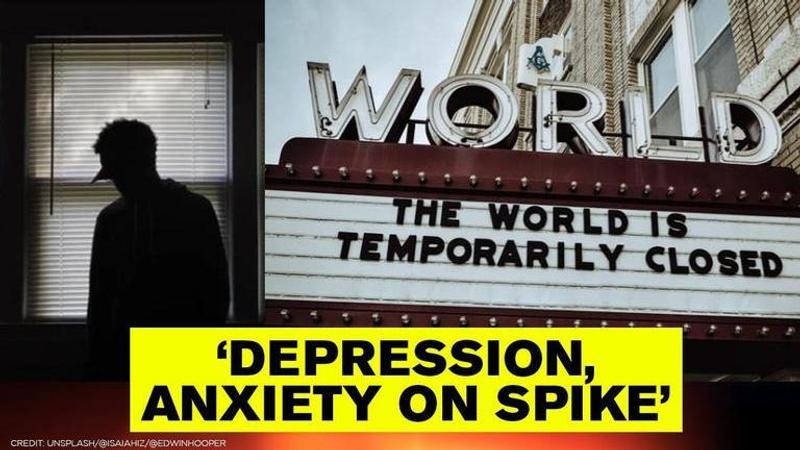Published 17:38 IST, September 3rd 2020
Depression and anxiety on spike among adults in post-lockdown world: Research
Signs such as hopelessness,feeling failure, or lack of interest in previously enjoyed activities are key issues reported by nearly half US adults in depression.

In a recent study, Mental health therapists have warned that the cases of anxiety and depression were on the rise in the post-pandemic lockdown world. A nonprofit Mental Health America report cited an increase in the number of patients screening themselves for depression and anxiety. The screenings were up more than 400 percent thought the mid-year, it said, compared to January 2020, the start of the year.
Signs such as hopelessness, feeling failure, or lack of interest in previously enjoyed activities are among key issues reported by nearly half of the US adults that sought therapy, the recent study conducted by health experts published in the medical journal JAMA Network Open revealed. BU study surveyed 1,440 US adults who were observed for depression symptoms. Doctors found that most adults reported several outbreak-related troubles ranging from financial, emotional, social problems, including COVID-19 deaths of a loved one or fears stemming from it.
“We see a lot of single young professionals. I think it’s been especially tough on them. The isolation, lack of connection, often enhances depression,” executive director Chelsea Hudson from Cityscape Counseling in Chicago said.
“There is “a general consensus in the mental health field on our need to be ready to brush up on our trauma training. Right now people are still in a state of shock,” she added.
The surge in the adults reporting downward spiral emotionally doubled from the rate recorded two years ago. While the issues were more angst related rather than full-blown psychiatric illness due to pandemic, several patients that consulted appeared to be in need of professional medical help. Doctors linked the surge in the depressive mood to the novel coronavirus pandemic that has led to financial distress, social isolation, and overthinking within the bounds of home confinements. More than the “mental illness” people projected depressive tendencies arising out of the circumstances, the experts found. Citing the political upheaval, protests worldwide, and loss of jobs or sluggishly moving businesses and the health crisis, experts said that people were demonstrating the emotional reactions to the COVID-19 pandemic and its prolonged adverse effects on the psychology.
“There is no question that many people in the U.S. and worldwide are experiencing real and often distressing emotional reactions to the COVID-19 pandemic and, in some cases, to contracting the virus,’’ psychiatrist Dr. Ronald Pies, a retired professor at SUNY Upstate Medical University, said in the research.
335% surge in distress calls
As COVID-19 claimed more than 850,000 lives worldwide, reported day-to-day, and almost 26 million infected with the disease, people were insecure and were impacted mentally, doctors said. The pandemic had also forced shut the leisure-oriented public outlets such as cinemas, bars, restaurants where people usually hung out, gyms, etc that threw millions out of the social interaction and engagement. This, as per experts, was one of the leading causes of depression. Calls on the US government-funded Disaster Distress Helpline had nearly surged 335 percent compared to the same period last year, 2019, according to the study.
“Helpline counselors have reported callers expressing feelings of isolation and interpersonal concerns related to physical distancing such as being cut off from social supports,” a spokeswoman for Vibrant Emotional Health, Hannah Collins said in the research.
Updated 17:38 IST, September 3rd 2020



